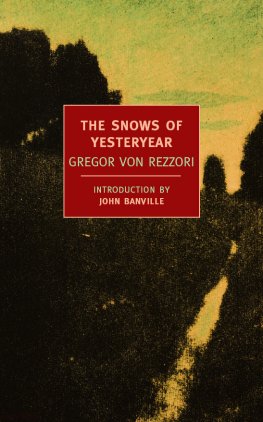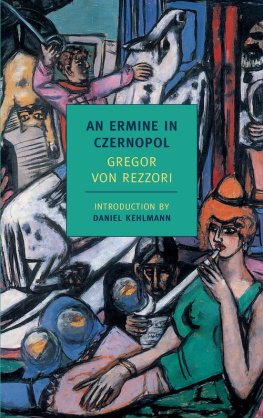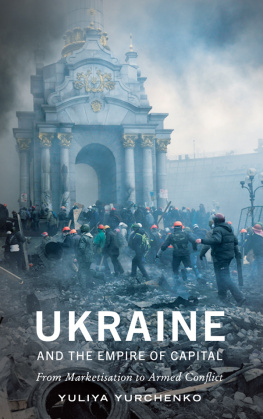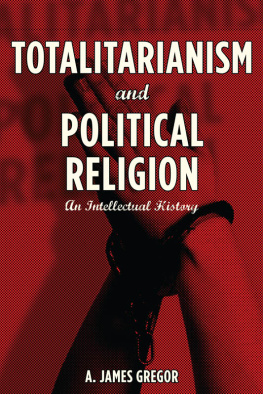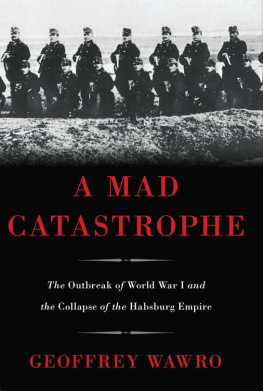Gregor von Rezzori
The Snows of Yesteryear
The Snows of Yesteryear is a masterpiece in that rare genre that might be classed as incidental autobiography. The story the book has to tell, of the formation of a soul and a sensibility, is slyly concealed within the interstices of a set of other stories, of other lives, other pasts. In its method, which seems not a method at all, it resembles those other two great magically dissembling memoirs of the twentieth century, Vladimir Nabokovs Speak, Memory and Harold Nicolsons Some People. Rezzoris style is less beadily precious and certainly less prolix than Nabokovs, and his psychological insights run deeper than Nicolsons, but all three writers share the same poise and elegance, the same drily critical eye and, delightfully, the same faintly absurdist wit. As Rezzori writes, to recognize what is absurd and to accept it need not dim the eye for the tragic side of existence; quite on the contrary, in the end it may perhaps help in gaining a more tolerant view of the world."
Gregor von Rezzori sprang from, in Humbert Humberts happy phrase, a salad of genes. On his fathers side his origins were Sicilian his paternal ancestors had moved north to serve the Hapsburg emperors while from his mother he inherited Swiss, Greek, Romanian, and Irish blood. He had the dubious distinction of being born in a country which ceased to exist while he was still a young man. The Bukovina, a region on the northern slopes of the Carpathian Mountains, boasts a history that in richness and complexity is entirely disproportionate to its size. The country, if that is the word, came into existence in 1775 as an annexation from Moldavia by the Hapsburgs, and remained a statelet within the Austro-Hungarian Empire until 1918 when it passed into Romanian control. In 1940, by the terms of the infamous Ribbentrop-Molotov Pact, it was split between Russia and Romania, and in 1947 Romania formally ceded the northern half of the country to the Soviets, the former capital, Czernowitz, becoming the Ukrainian city of Chernovtsy.
By the melting-pot standards of the Bukovina, Rezzoris background was relatively uncomplicated. Neither of his parents was born in the region. His father, a minor aristocrat and a civil servant in the employ of the Empire, came from Austria to Czernowitz at the end of the nineteenth century to take up the post of overseer of the art and artifacts of the Romanian Orthodox monasteries in the region. His mothers parents, Rezzori writes, had lived there temporarily, connected with the country by an originally Greek bloodline that over the centuries had become Romaniana typical example of his elegantly and blandly unenlightening narrative style. In the years between the wars, from 1919 to 1939, the family persisted in the illusion of having a pseudo-feudal position in the world. We considered ourselves as former Austrians in a province with a predominantly Austrian coloring, like those British colonials who remained in India after the end of the Raj.
The milieu that Rezzori writes of so vividly is that quintessential Mitteleuropa which disappeared into the maelstrom of the Second World War. In his moving epilogue to the book he recounts a visit paid to his birthplace in old age. Naturally I had to assume that the Ukrainian Chernovtsy of 1989, cleansed of its hodgepodge of Swabian Germans, Romanians, Poles, Jews, Prussians, Slovaks and Armenians, could no longer be the Czernowitz or Cernui that I had last visited in 1936. At first he is astonished to find how much the present-day city resembles the one that he knew more than half a century before. Presently, however, he comes to recognize that this clean, freshly painted, composed, and sober city is merely a simulacrum, a cunning model of a provincial town. The words that spring to his mind are sterile, lacquered, antiseptic. The citys once demonic nature has been tamed. Nothing could be detected now of the restlessly vivacious, cynically bold and melancholically skeptical spirit that had distinguished the children of this town As Thomas Wolfes angel assures, you cant go home again.
The writer, of course, snail-like, carries his home with him. The Snows of Yesteryear is not so much an effort of Proustian remembering as an attempt to reconstitute a vanished world in this context one thinks of Roman Vishniacs heartbreaking photographs of the Jews of Eastern Europe in the 1930s and in particular to conjure into life the five figures who loom most immensely and most dearly in Rezzoris memory of his early years. He begins and ends with portraits of two family servants, as unlike each other as could be possible. The first, Cassandra, baby Gregors wet-nurse and later governess of sorts, is a beloved but feral creature, a descendant probably of the Dacian people who fought the Roman armies through the Carpathian wildernesses; he associates her with the melancholy spaces of a landscape peopled with peasants and shepherds through which the silver band of a river meanders lazily, edged by hills and mountains shaded by forests. It is Cassandra who gave the book its original, German, title, Blumen im Schnee, after the blossoms she would make for him when he was a child by printing overlapping circles in the fresh-fallen snow with the bottom of a milk can, a beautiful, simple image characteristic both of the remembered woman and the remembering author.
The separate portraits of Rezzoris mother and father which make up the heart of the book are tender, skeptical, penetrating, and at key moments, devastatingly candid. Rezzori, a lover of women but at heart a mans man, cleaves naturally to the father, forgiving him his many faults, the large as well as the small, including his fierce and unrelenting anti-Semitism. Both parents harbored unfulfilled ambitions, the mother to be a pediatrician, the father a chemist, and these disappointments shadowed their lives to the end.
Rezzori senior, tall, vigorous, handsome, was an obsessive hunterI often thought, his son writes, that his all-consuming passion for hunting was in reality an escape and a shelter from the reminder of a truer and unrealized vocationand an amateur painter, a very bad one, it seems, suffering from a disarming mediocrity in matters of taste. Although the author presents his father always in sunniest mode there are marvelous vignettes of the various means he employed for thwarting his wifes society aspirations the overall portrait is of a tragic figure lost in time. An admirer of Nietzsche, Rezzori pre saw himself, his son writes, as a representative of the world of the Baroque who had landed in the wrong century.
If the portrait of his father has a touch of the heroic, Rezzori cannot stop himself from showing up his mothers pettiness and narrowness of mind, her essential fear of the world, above all her spurious hankering after the grand life of parties and fashionable balls and suave men in tailcoats bowing low over her silk-gloved hand. Yet he has a deep and loving sympathy for her plight as a woman of her time, brought up by unbending parents and trapped in a marriage from which what little love there might once have been had quickly and entirely evaporated. The unrealized dream of leading a fulfilled and useful life as a doctor had, the son writes, with a true pang of sorrow, curdled into a bitter residue at the bottom of her soul.
Of his sister, who was older than he by four years and who died at twenty-two, Rezzori writes that for all the years after her death not one went by in which she was not present to him in an almost corporeal way. Yet his portrait of her is amused as well as loving, as sharp as it is fond, and tinted here and there by astringent washes of resentment. In this chapter of mourning for his lost sister, Rezzori displays a wonderful control both of his material and his writing style. He is never mawkish, never strives for the grand flourish; he keeps his distance, content to achieve his effects by the lightest of brushstrokes.

